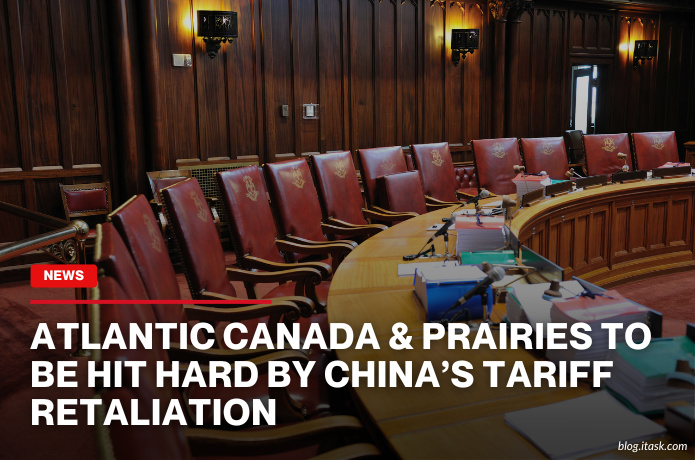Atlantic Canada & Prairies To Be Hit Hard By China’s Tariff Retaliation
Atlantic Canada & Prairies To Be Hit Hard By China’s Tariff Retaliation

China's recent decision to impose tariffs on Canadian goods is set to significantly impact Atlantic Canada and the Prairie provinces. This move comes in response to Canada's earlier tariffs on Chinese electric vehicles and metals. The Royal Bank of Canada (RBC) warns that these retaliatory tariffs will heavily affect specific sectors, particularly agriculture and seafood, which are vital to these regions' economies.
The new tariffs include a 100% duty on Canadian canola oil, canola oil cake, and pork imports, along with a 25% tariff on aquatic products. In 2024, these affected exports were valued at approximately $2.9 billion. While this represents a small fraction of Canada's total exports, the concentration of these industries in certain provinces means the economic impact will be unevenly distributed.
Nova Scotia is expected to be the hardest hit, with the affected goods comprising about 9.2% of its total exports. Lobster exports to China alone accounted for nearly $452 million in 2024, a significant portion of the province's economy. Newfoundland and Labrador, with $105 million in shrimp exports, and Saskatchewan, with $515 million in canola and cake exports, are also facing substantial challenges.
The timing of these tariffs adds to existing uncertainties in the agriculture sector, which is already grappling with trade tensions involving the United States. Farmers and producers in the Prairies are particularly concerned, as they rely heavily on exports to both China and the U.S. The loss of access to these markets could have severe financial implications for these communities.
Critics point out that the provinces most affected by China's tariffs are not the ones that benefited from Canada's initial trade measures against China. Ontario and Quebec, which were the primary beneficiaries of the tariffs on Chinese goods, face minimal impact from China's retaliation. This disparity has raised concerns about the fairness and strategic planning of Canada's trade policies.
As the situation unfolds, stakeholders are calling on the federal government to engage in dialogue with China to resolve the trade dispute and to provide support to the affected industries. Without timely intervention, the economic repercussions could deepen, affecting employment and the broader economic stability of the impacted provinces.
